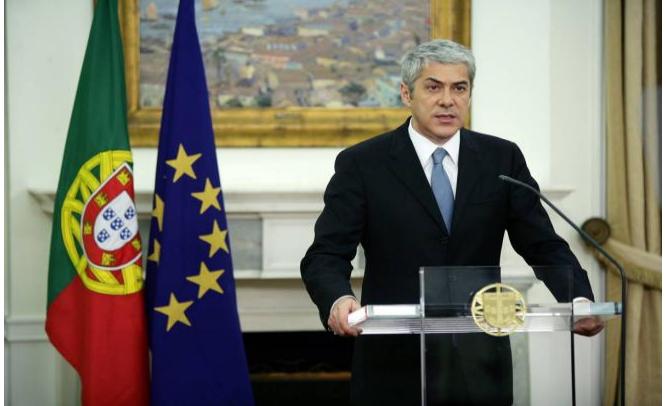If Portugal doesn’t abide by the austerity programme, its creditors could halt the disbursement of funds, which means it will not have any source of funds to repay its huge debts.
7th July 2013
Portugal’s financial markets tumbled on Wednesday as the government teetered on the brink of collapse, alarming investors and reigniting concerns about the euro zone’s strategy for dealing with its prolonged financial crisis. The implosion of the coalition government in Lisbon came as unwanted remainders of the deepening rift among European politicians over whether continue with the austerity plans enforced by international lenders. Prime Minister Pedro Passos Coelho defied calls to resign but he was running out of options to keep his centre right coalition government together following the resignation of two key ministers in an embroiled controversy of enforcing austerity.
The resignations raised concerns that its coalition partner in the government could pull its support, which would leave the government with insufficient votes in parliament to pursue reforms required to keep accessing the bailout loans. The funds are vital to avoid bankruptcy of the European nation. Portugal had agreed on the 78 billion bailout program with other Euro countries, the European Central Bank and the International Monetary Fund two years ago. Leaders of the 17 European Union nations that have a common currency, the Euro have insisted cuts on countries like Portugal which is facing as huge debt burden. However, the cuts have hit the economy hard with the standard of living going low and the austerity programs of the government drawing ire of trade unions and business leaders.
Exclusion from Euro Zone on the cards?
If Portugal doesn’t abide by the austerity programme, its creditors could halt the disbursement of funds, which means it will not have any source of funds to repay its huge debts. That development “could trigger a sovereign default and potential removal from the eurozone, with contagion spreading across to Greece, a country that is currently struggling to secure its next tranche of aid money,” an expert opined.
Paulo Portas, the leader of the junior party of the coalition government quit on Tuesday in protest with the rising public sentiments and corporate Portugal to continue with tax hikes, pay and pension cuts. Vitor Gaspar, the finance minister of Portugal and considered as the architect of the austerity reforms had quit on Monday, he said his austerity strategies lacked political and public support. Prime Minister Passos Coelho was however hopeful of keeping his cabinet in order through mutual talks and discussions to resolve issues, but this seems unlikely as public sentiments are going awry over austerity strategies and opposition on the austerity strategies are gathering momentum every day. This week’s upheaval in Lisbon is touted as a “victory for the anti-austerity camp,” said Luis Cabral, a Portuguese economist and a senior faculty at the New York University.
In May 2011, Lisbon negotiated for a bailout with the creditors for $ 101 billion, linked to an overhaul program that was meant to improve its economic competitiveness.
Hard Measures
Portugal a member of the eurozone had obtained a rescue loan of € 78 billion Euros ( $ 100 billion) from the IMF, European Central Bank and European Union to be disbursed to stave off its debts on certain conditions that it enacted radical measures resurrect public finances and raise efficiency in the economy. But the measures of the government which included removal of 30,000 civil jobs and postponement for pension eligibility from 65 years to 66 years have outraged the public and also seen objections from ruling party ministers. Last year the economy contracted by 3.2 percent and is forecast to shrink by another 2.3 percent in 2013. Unemployment has reached a staggering 18 percent up from 16.9 percent recorded in the fourth quarter of last year, the latest poll has shown that nearly 82.5 percent of the people in Portugal saying it should either break the agreement or renegotiate the terms of the agreement, 55.1 percent also said Portugal will have the worst ever economic crisis when the bailout program ends. The political crisis hit shortly before inspectors from Lisbon’s creditors arrive to start their review of the economy on July 15th.
Jose Manuel Barroso, President of European Commission and a former prime minister of Portugal opined the indebted nation risked damaging its hard earned financial credibility after two years of closely following its € 78 billion bailout package, co-ordinated by IMF, European Union and European Central Bank
The future of the government now hangs in balance, prime minister Coelho reiterated the fact that he would not resign, and said he would be able to surpass the difficulty and convince the rebels who have resigned, he was speaking to reporters in Berlin after attending the EU summit on youth unemployment. With no solution being imminent, the euro fell and interest rate on Portuguese government debt soared to 7 percent, a situation where debts are considered unsustainable, Portugal’s main PSI 20 stock index plunged 6.4 percent to 5,177 in late morning trading on Wednesday.

